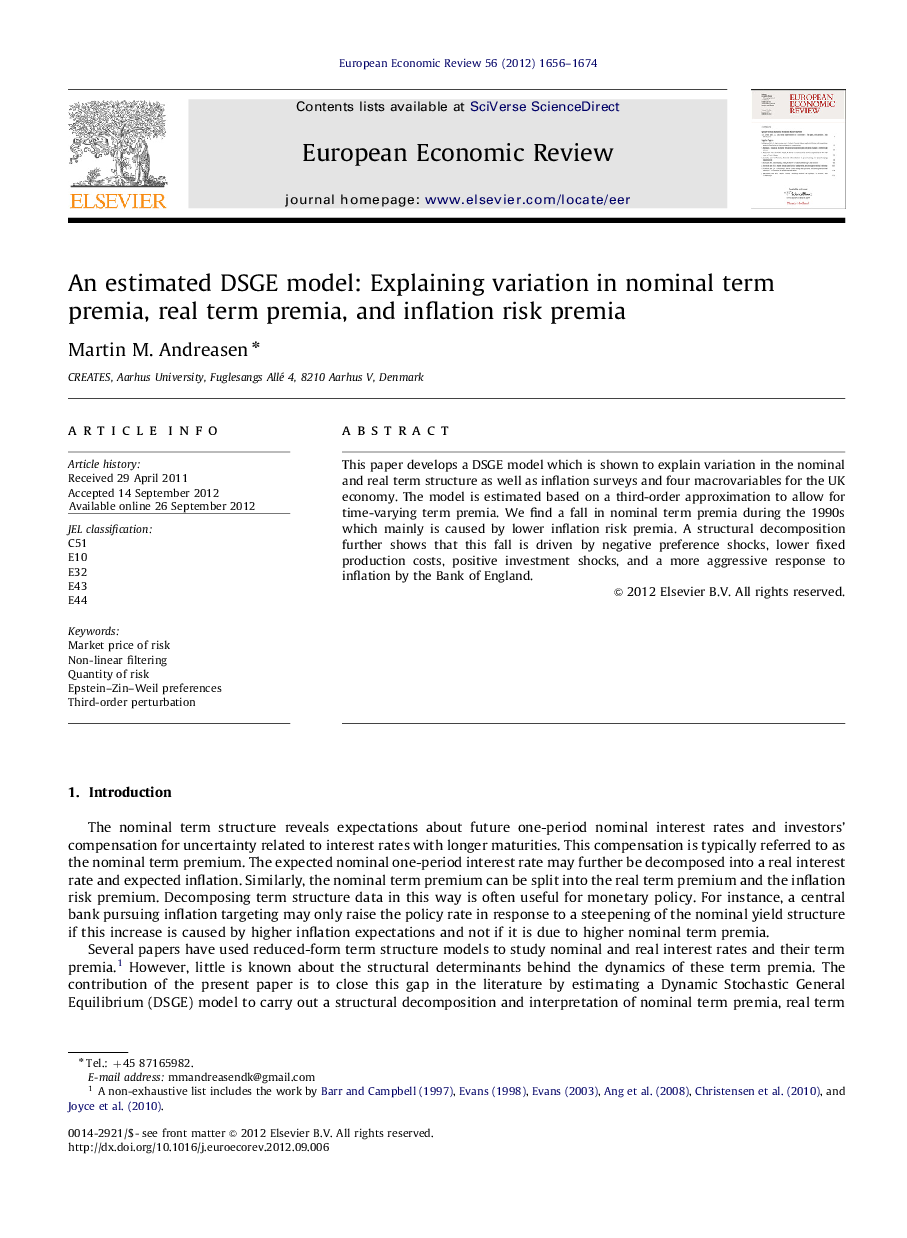| Article ID | Journal | Published Year | Pages | File Type |
|---|---|---|---|---|
| 5066980 | European Economic Review | 2012 | 19 Pages |
This paper develops a DSGE model which is shown to explain variation in the nominal and real term structure as well as inflation surveys and four macrovariables for the UK economy. The model is estimated based on a third-order approximation to allow for time-varying term premia. We find a fall in nominal term premia during the 1990s which mainly is caused by lower inflation risk premia. A structural decomposition further shows that this fall is driven by negative preference shocks, lower fixed production costs, positive investment shocks, and a more aggressive response to inflation by the Bank of England.
⺠A New Keynesian model is used for decomposing term premia in the UK. ⺠Nominal term premia fell during the 1990s due to lower inflation risk premia. ⺠A more active response to inflation by the Bank of England contributed to this fall. ⺠However, negative preference shocks and lower production costs were also important.
